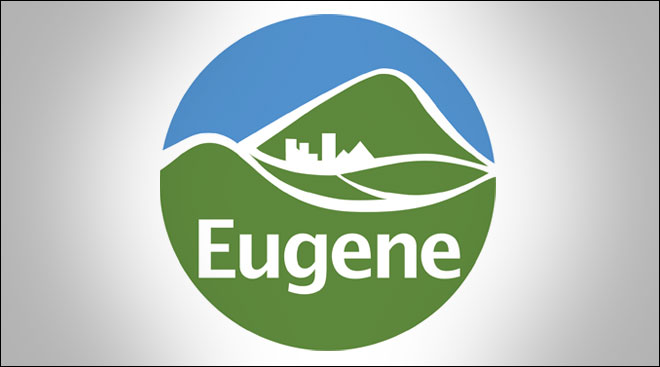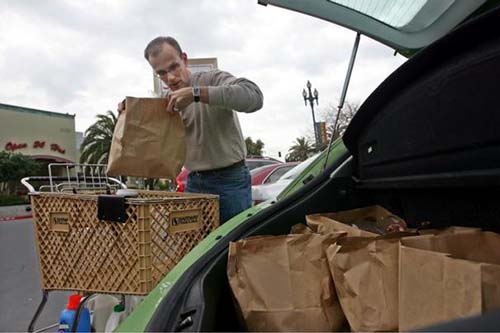Once Again Eugene, Oregon Considers Disposable Bag Ban and Imposing a 5-Cent Fee on Paper Bags

Eugene, Oregon Finally Close to Passing a Disposable Bag Ban
Eugene Oregon has tried for many years to get an eco-friendly plastic bag ban on the record and now that bag ban is within reach. If plastic bags do not end up in landfills where they will take up space and never break down, they float around as litter and can cause serious harm to animals and their habitats. Unfortunately, thin plastic bags are seldom recycled.
As plastic bags are petroleum-based, they are not sustainable because a non-renewable resource is used to make them. The perceived convenience of a disposable bag to carry items home from the store does not come close to offsetting all of the negatives plastic bags cause. This is why an eco-friendly bag ban is very appealing to many consumers and business owners alike.
How Paper Bags Fit Into the Eugene Disposable Bag Ban
Everyone in Eugene was so hung up on plastic, that paper bags were never a consideration when talk of a ban first started. Even now there is no plan to ever call for a complete ban on paper bags. Paper is tricky though, the manufacturing process of paper bags releases harmful greenhouse gases, and depending on the composition of the paper (virgin material versus post-consumer waste) the so-called green traits can vary greatly. The big advantage of paper bags is that they are recyclable, and people actually recycle them, which helps offset some of the negatives surrounding the manufacturing process.
Current Ban Proposal in Eugene Calls for a 5-cent Fee to be Levied on Paper Bags
 Paper bags cost more than plastic so whenever there is talk of banning plastic bags retailers get a little nervous. Banning plastic means shoppers may switch to paper, and while money would be saved by businesses that no longer must purchase plastic bags, that would not counterbalance the cost of the additional paper bags that would need to be purchased.
Paper bags cost more than plastic so whenever there is talk of banning plastic bags retailers get a little nervous. Banning plastic means shoppers may switch to paper, and while money would be saved by businesses that no longer must purchase plastic bags, that would not counterbalance the cost of the additional paper bags that would need to be purchased.
Since paper bags tend to cost 5 to 10 cents more than plastic bags, the fee shoppers would pay per bag is designed to help stores stock extra paper bags. This paper bag fee solution is great because the cost of using paper bags is directly covered by the folks who use them. If the fee was not part of the arrangement, stores would be left with no choice but to increase prices to cover this additional cost. Increased prices could obviously turn off shoppers and hurt business.
An Increase in Paper Bag Use Would Be Harmful to the Environment
It is also envisioned that the paper bag fee will deter shoppers from switching out plastic with paper bags. For instance, Portland, Oregon has a plastic bag ban that has no stipulations surrounding paper – there is no fee or tax. Since the ban was introduced in 2011 paper bag usage is up 500 percent. If there is no reason for shoppers to not use paper, they will use a lot more of it since plastic is not available. Tan increase in paper bag use is tough for the retailers and tough on the environment because while paper is not as bad on the environment as plastic, it is not doing the environment any favors either. Reusable shopping bags are the best sustainable option that is both environmentally and economically friendly.
Shouldn’t a Disposable Bag Ban Be a No Brainer?
Banning plastic bags may seem like a no-brainer, but it is important to consider how this single action can set off other chains of events. The key to a successful disposable bag ban is anticipating any and all outcomes and creating a workable solution for consumers and businesses alike.
The future of disposable bags in Eugene will be determined on October 22 when the City Council votes on the matter. If passed, the ban would take effect in April 2013. Until the ban is passed, consumers are encouraged to bring reusable grocery bags with them when they shop to reduce the impact of plastic bags on the environment and wildlife.
Tagged




